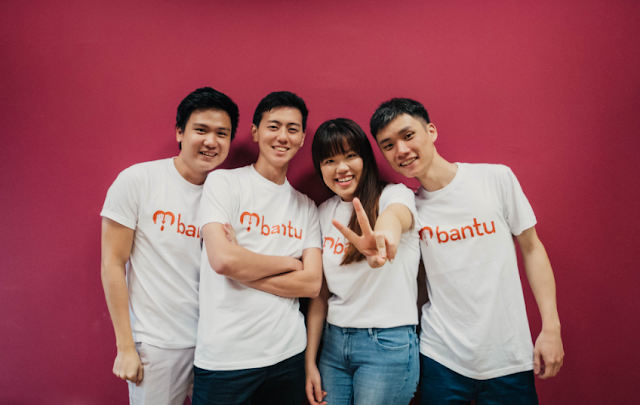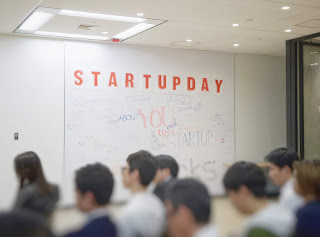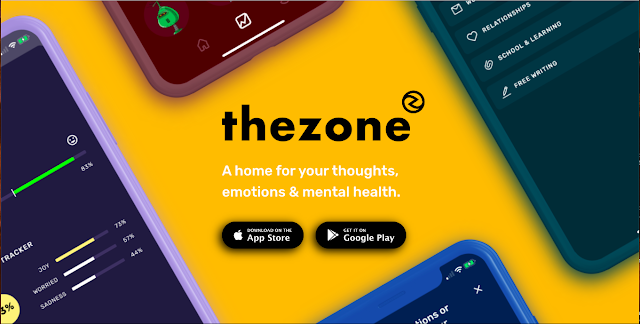bantu - Using Technology to Accelerate Social Impact
This week, We went to the I&E@SOC incubator in ICube building and interviewed Joshua Foong, the co-founder of bantu. bantu is a web management platform targeted at NPOs (Non-Profit Organisations) to help them engage and deploy volunteers at ease. After NPO publish their projects on the website, volunteers can check and sign up for the program they are interested in. bantu has joined I&E program for 1 year 9 months, under the mentorship of Prof Francis YEOH and Prof Lai Kok Fung.

1. How do you come up with this idea to found bantu?
bantu has four co-founders and we met during the NOC program in the US. One thing that we saw was there are a lot of gaps in the social sector especially in terms of technology. Therefore, we wanted to see how we can bring technology into a social capacity. This is the trigger and we are very active in this. We brought this concept back to Singapore and approached some non-profits. They said, can you help us build a management system.
The for-profit sector has a lot of CRM systems. But the social sector doesn't have a CRM system. When they don't have a CRM system, a lot of things are very manual, very arcane, very very pen and paper. So that's what we decided to do. We decided to build a volunteer management system for these social organizations. After that, we have expanded that to different kinds of capacities like managing events, managing the community, managing their email and SMS. All because we realized that we can empower them to do their work better so that they can help beneficiaries through the internet.
2. Understand you start this start-up when you were still a student in NUS. What makes you decide, “even if I was just a student, I wanted to do this at this point of time.”
Honestly, we don't really have a clear timeline that says, oh we want to start a company. We just approach this first as a project because we said, “OK let's build something to help this particular organization”. After we talked to almost one hundred organizations, we realize we could turn this into a bigger mission and help not just non-profit organizations in Singapore, but organizations in Thailand, Malaysia, which is what we're doing now. Back then we didn't know what a social enterprise is. But then we realize that we became a social enterprise, which is we are a for-profit company that, in our case, uses technology to create good with social impact.
3. Could you share more about your business model and how you keep the company growing as a social enterprise.
The first thing you need to know about is, such enterprises are the same as a for-profit company. In the sense that we have to make money. But what we do with the money, why we are doing it and how we do it is what differentiates us. How we do is we build technologies, but we exclusively build it for the social sector. But recently we have been expanding. We expanded to companies that are doing CSR, that companies want to do some social responsibility projects. So, you can see that the angle here is to help the organizations that are creating social impact.
Secondly is the revenue model. We're looking at a subscription-based. Like HubSpot, a CRM system where you have a monthly subscription. So monthly, annually subscriptions create recurring revenue for our company. This is the main revenue model. There are also other things that we can explore. but It's always good to just concentrate on this one.
4. As bantu is under I&E program, may I know what's your takeaways from this program.
Two things are very important to us. The first thing is definitely the material tangible benefits for us. Furnace program provides us a rent-free space that we can really concentrate and focus on building the project. And this coworking space is a lot better than any other coworking space, because it's enclosed.
The second is mentorship. We are very fortunate because we linked up with both Prof Lai and Prof Francis. They're both very strong proponents of the social enterprise aspect. Prof Francis work with many non-profits and he sees this as a real administrative problem, and he sees the value that we bring in. Prof Lai himself has done a start-up before. Both of them have done start-up before. Through his connections, we got linked with government officials that really helped in knowledge building when we are trying to approach a topic that we have no idea about.
5. Do you have any advice for students who also have a start-up idea but haven't started it.
I think it was always don't start something for the money. Because if you are starting it for the money, when you fail, you will think of it just as a failure because you didn't get to the million-dollar or you didn't get to that financial milestone that set for yourself. But if you set it down for other purposes, even if you fail, you can always take that experience and then bring it over with something else. This is a very practical way of looking at what a start-up can do for you as a person. The fact is not all start-ups can succeed. But if you are willing to do a start-up then you must be willing to accept that at some points you may fail and then you must ask yourselves why and how you can take that experience and do better.
6. What's the key difference for you to work in your own start-up rather than working in well-established companies?
Honestly, I don't know because I've always worked in start-ups, either work for another start-up or now I work on my own. Working in a big company definitely is very comfortable. I believe you can create impacts wherever you are. I don't think that in a big company you cannot create impacts, it can't be meaningful. It's just that you're not driving it. If you are someone really believes in driving certain things in certain direction, like me. Then where I am seated, I can bring a company and I can create a change in the way I want to. It was an important thing.
7. Where do you envision yourself and bantu to be in the next 5 or 10 years?
The big goal is we want to be the "HubSpot" for the social sector. We want to be the CRM that any organization can go to if they have a plan to help. And we want to scale bantu across the Asia Pacific. Why we want to do that is because we want to prove that creating technology for the social sector is something that's scalable. And we are scaling it right now. We hope to show people helping the social sector is something you can also create sustainable revenue. And then we will really change the conversations about technology in the social sector.

If you are interested to start your own companies or have any questions, please contact us!




Comments
Post a Comment